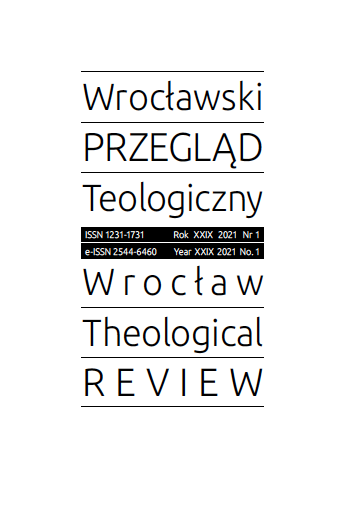Die Logik der Sϋnde und das Sakrament der Beichte
The Logic of Sin and the Sacrament of Confession
Author(s): Tadeusz KuźmickiSubject(s): Christian Theology and Religion, Theology and Religion, Systematic Theology
Published by: Papieski Wydział Teologiczny
Keywords: sin; denial of sin; excommunication; penance; reconciliation; confession; history of confession; Celtic (Irish-Scottish) monks; anthropology; Church
Summary/Abstract: Moral and theological reflection on sin is based on an anthropology that presupposes human weakness. Although this assumption has met with criticism that even led to the denial of sin, a universal view on anthropology leaves no doubt about human error or guilt. A constructive approach to the logic of sin has encouraged many believers to receive the sacrament of confession that has taken various forms over the centuries. The first indications of a positive experience of sin can already be found in the Old Testament, and in particular in the saving work of Jesus Christ. The early Church faced the difficulty of assessing the genuineness of conversion in cases when sins were repeated. At the same time, the faithful were motivated to a profound change by means of excommunication, penance and reconciliation. Initially, this was only possible once in a lifetime, which made some of the faithful do penance just before death. It was not until the 6th century that the Celtic monks introduced the custom of repeated confession as a practice of the spiritual life. Subsequent Councils sanctioned the role of repeated confession in the Church. Immediately after the Second Vatican Council, however, it was noticed that in the countries of Western Europe from the 1970s onwards confession was less and less frequent, until finally the practice almost disappeared. These events and an analysis of the historical development of confession allow us to draw three conclusions. Firstly, man should confront the fact of his personal sin. Secondly, in this confrontation the community of the Church comes to his aid. Thirdly, the believer discovers the mystery of his conversion in the encounter with the forgiving God in confession as an everpresent aporia of the dialectical experience of sinfulness and holiness.
Journal: Wrocławski Przegląd Teologiczny
- Issue Year: 29/2021
- Issue No: 1
- Page Range: 207-226
- Page Count: 22
- Language: German

